
Sfax: The Hidden Gem of Tunisia
Sfax, located on the eastern coast of Tunisia, is a city that beautifully blends ancient history with modern life. Known for its well-preserved medina, Sfax offers an authentic experience of Tunisian culture. The city is less frequented by tourists, making it an ideal destination for those looking to explore Tunisia's rich heritage without the crowds. The medina, a UNESCO World Heritage site, is the heart of Sfax. Its winding alleys are filled with traditional shops, bustling markets, and historic architecture. Don't miss the Great Mosque of Sfax, a stunning example of Islamic architecture that dates back to the 9th century. The medina walls, built in the 10th century, are still intact and provide a fascinating glimpse into the city's past. Beyond the medina, Sfax boasts a vibrant modern city center with a variety of cafes, restaurants, and shops. The local cuisine is a delightful mix of Mediterranean and Tunisian flavors, with seafood being a prominent feature. For a relaxing day, visit the nearby Kerkennah Islands, a short ferry ride away, where you can enjoy pristine beaches and crystal-clear waters. Sfax is also a gateway to some of Tunisia's most stunning natural landscapes. The nearby salt flats of Chott El Jerid and the desert dunes of the Sahara are just a few hours away. Whether you're interested in history, culture, or natural beauty, Sfax has something to offer every traveler.
Local tips in Sfax
- Visit the medina early in the morning to avoid crowds and enjoy a more peaceful experience.
- Try the local seafood dishes at one of the many restaurants in the city center.
- Take a day trip to the Kerkennah Islands for a relaxing beach experience.
- Wear comfortable shoes when exploring the medina as the streets are narrow and uneven.
- Learn a few basic phrases in Arabic or French; locals appreciate the effort and it can enhance your experience.
- Visit the Great Mosque of Sfax; non-Muslims can admire its architecture from the outside.
- If you plan to visit the Sahara, consider hiring a local guide for an enriching experience.
Sfax: The Hidden Gem of Tunisia
Sfax, located on the eastern coast of Tunisia, is a city that beautifully blends ancient history with modern life. Known for its well-preserved medina, Sfax offers an authentic experience of Tunisian culture. The city is less frequented by tourists, making it an ideal destination for those looking to explore Tunisia's rich heritage without the crowds. The medina, a UNESCO World Heritage site, is the heart of Sfax. Its winding alleys are filled with traditional shops, bustling markets, and historic architecture. Don't miss the Great Mosque of Sfax, a stunning example of Islamic architecture that dates back to the 9th century. The medina walls, built in the 10th century, are still intact and provide a fascinating glimpse into the city's past. Beyond the medina, Sfax boasts a vibrant modern city center with a variety of cafes, restaurants, and shops. The local cuisine is a delightful mix of Mediterranean and Tunisian flavors, with seafood being a prominent feature. For a relaxing day, visit the nearby Kerkennah Islands, a short ferry ride away, where you can enjoy pristine beaches and crystal-clear waters. Sfax is also a gateway to some of Tunisia's most stunning natural landscapes. The nearby salt flats of Chott El Jerid and the desert dunes of the Sahara are just a few hours away. Whether you're interested in history, culture, or natural beauty, Sfax has something to offer every traveler.
When is the best time to go to Sfax?
Iconic landmarks you can’t miss
Radisson Hotel Sfax
Discover unmatched comfort and modern luxury at Radisson Hotel Sfax, the perfect base for exploring Tunisia's rich culture and history.
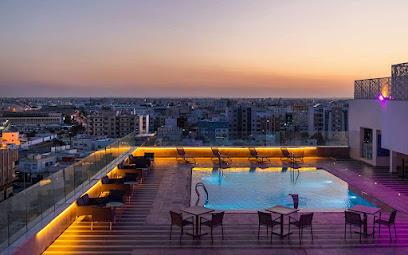
Zoo Touta
Explore Zoo Touta in Sfax, Tunisia – a unique zoo and park experience blending wildlife, education, and nature for all ages.
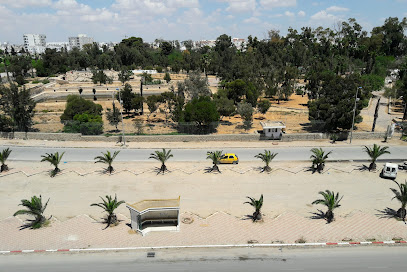
Bab Jebli
Explore Bab Jebli, a historical landmark in Sfax, Tunisia, where rich heritage meets stunning architectural beauty, capturing the essence of ancient Tunisia.
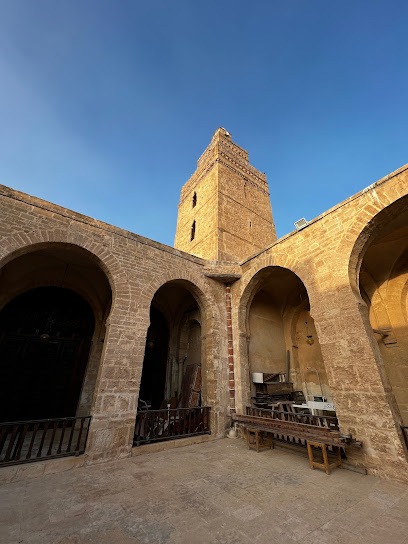
Stade Taïeb Mhiri
Experience the electrifying atmosphere of Stade Taïeb Mhiri, Sfax's premier stadium, where local soccer matches come alive with passion and community spirit.
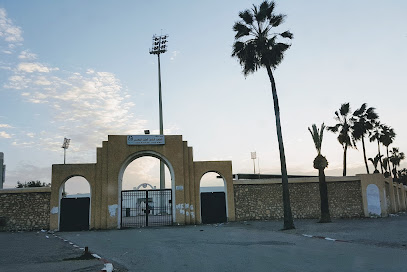
Sfax–Thyna International Airport
Discover the gateway to Sfax, Tunisia, at Sfax–Thyna International Airport, blending modern travel with local charm for an unforgettable experience.
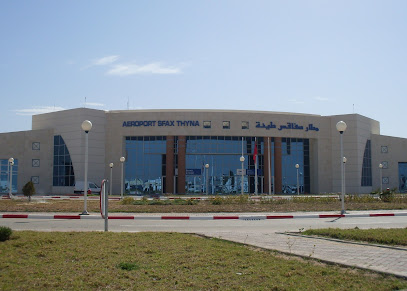
Beb Eddiwen
Explore Beb Eddiwen, a historical landmark in Sfax, Tunisia, where rich culture and stunning architecture come together to offer unforgettable experiences.
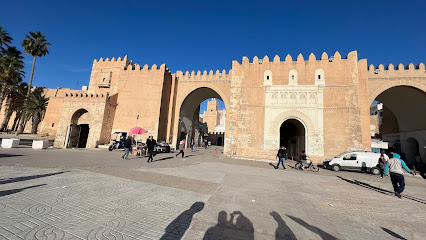
Business Hotel Sfax
Discover comfort and cultural richness at Business Hotel Sfax, where modern amenities meet traditional Tunisian charm for an unforgettable stay.

Papillon Pizza By Chef
Discover the authentic Italian flavors at Papillon Pizza By Chef in Sfax, where every slice offers a taste of Italy in a cozy ambiance.
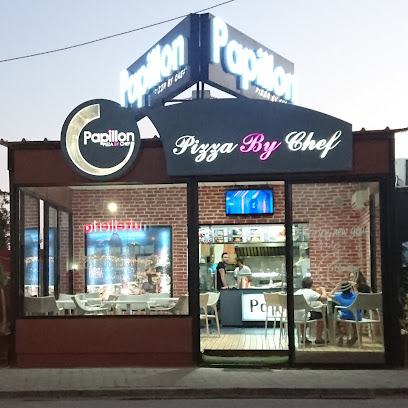
Gelaterie Donatello
Experience the rich flavors of Gelaterie Donatello, Sfax's premier ice cream destination, delighting taste buds from morning till midnight.
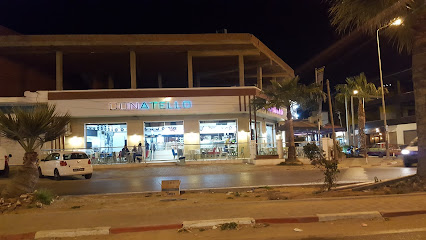
Hôtel Palais Royal
Discover the luxurious comfort of Hôtel Palais Royal in Sfax, where elegance meets the rich heritage of Tunisia.

Sfax Grand Mosque
Explore the Sfax Grand Mosque, a stunning example of Islamic architecture and a vibrant cultural hub in the heart of Tunisia.
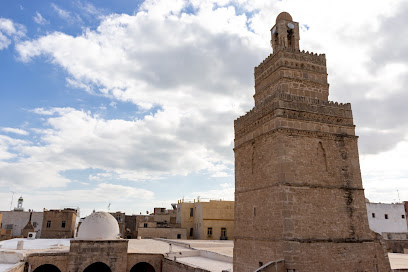
plage casino sfax
Discover the serene beauty of Plage Casino in Sfax, a perfect beach destination for relaxation, local flavors, and stunning Mediterranean sunsets.
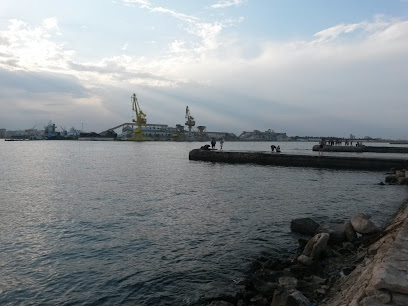
Casbah Museum
Discover the vibrant history and culture of Tunisia at the Casbah Museum in Sfax, where every artifact tells a unique story.
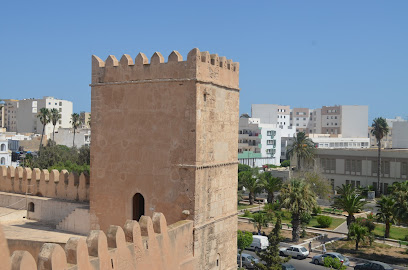
Chaffar beach
Discover the serene beauty of Chaffar Beach in Tunisia, a perfect coastal getaway for relaxation, adventure, and breathtaking sunsets.
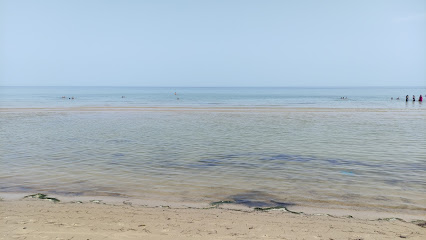
ATLAS World
Experience endless fun and excitement at ATLAS World in Sfax, Tunisia's premier amusement center with thrilling rides and attractions for all ages.
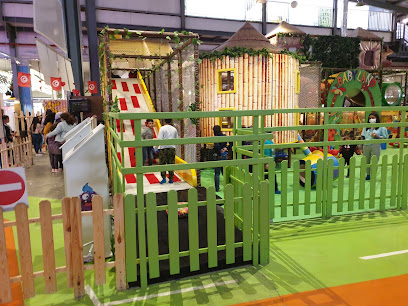
Unmissable attractions to see
Bab Jebli
Explore Bab Jebli in Sfax, a historical landmark that encapsulates Tunisia's rich heritage and architectural beauty, perfect for history enthusiasts.
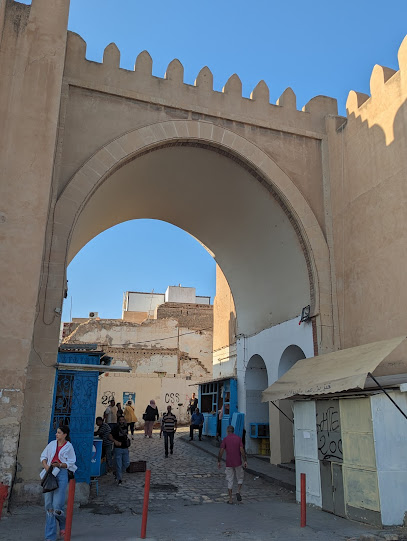
Zoo Touta
Explore Zoo Touta in Sfax, a vibrant zoo and park offering an educational and entertaining experience for all ages amidst beautiful natural surroundings.
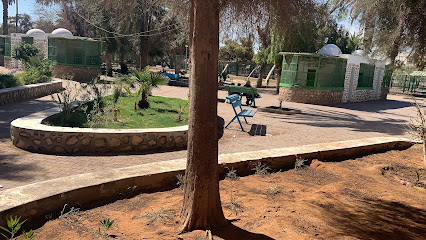
Beb Eddiwen
Explore the historical richness of Beb Eddiwen, a landmark in Sfax, Tunisia, showcasing exquisite architecture and cultural heritage.
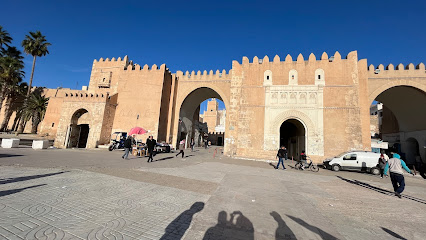
Sfax Grand Mosque
Discover the stunning architecture and rich history of the Sfax Grand Mosque, a cultural gem in the heart of Sfax, Tunisia.
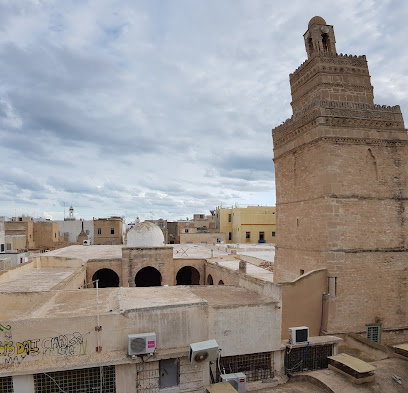
plage casino sfax
Discover the serene beauty of Plage Casino Sfax, a hidden gem along Tunisia's stunning coastline, perfect for relaxation and local culture.
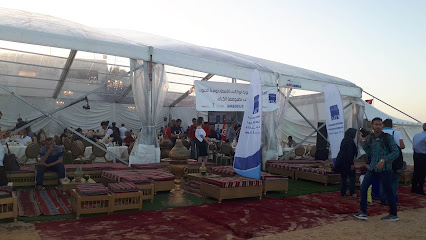
Casbah Museum
Explore the rich history and culture of Tunisia at the captivating Casbah Museum in Sfax, a must-visit for every traveler.
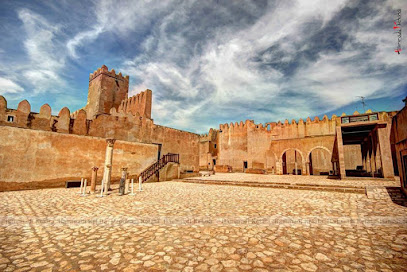
Chaffar beach
Experience the tranquil beauty of Chaffar Beach in Tunisia, where soft sands and serene waters create the perfect getaway for relaxation and exploration.
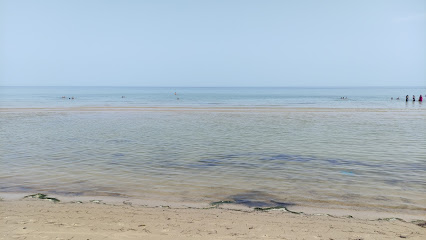
Dar Jellouli Museum
Discover the artistic heritage of Tunisia at Dar Jellouli Museum, a historical gem in Sfax showcasing exquisite art and cultural artifacts.
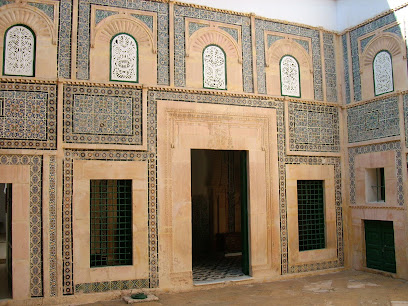
Sfax Archaeological Museum
Explore the Sfax Archaeological Museum, where Tunisia's ancient history comes alive through captivating artifacts and exhibits.
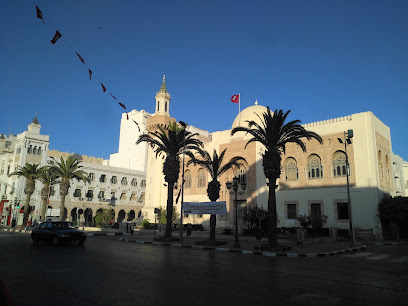
Aqua Park elmoulouk
Discover the excitement at Aqua Park Elmoulouk, a premier water park in Sfax, Tunisia, featuring thrilling slides and fun for all ages.
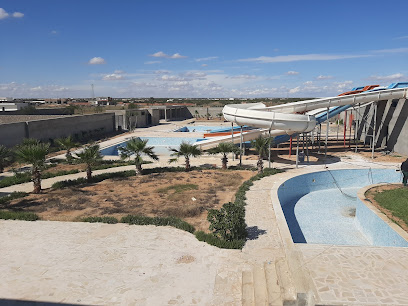
L'île aux flamants roses
Explore the stunning L'île aux Flamants Roses, a picturesque island sanctuary teeming with vibrant wildlife and breathtaking landscapes in Chaffar.
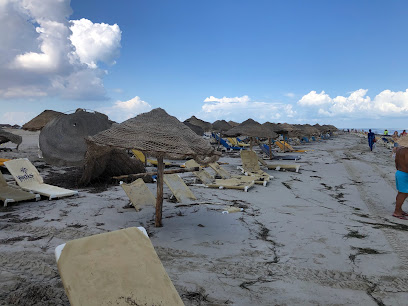
Bella balade en mer kerkennah
Experience the serene beauty and adventure of the Mediterranean at Bella Balade en Mer Kerkennah, a top tourist attraction in Tunisia's breathtaking Kerkennah Islands.
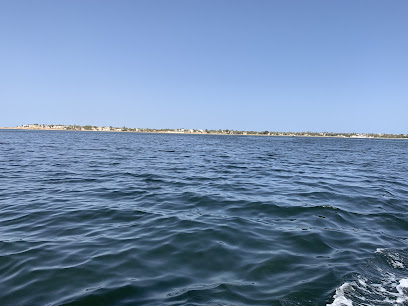
Dakar Garden
Discover the lush beauty of Dakar Garden in Sfax, a serene park perfect for relaxation, picnics, and enjoying nature's splendor.
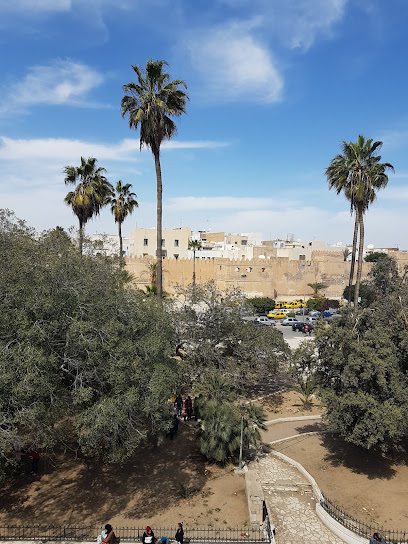
Thaenae - Site Archéologique de THYNA
Explore Thaenae, a remarkable archaeological site in Tunisia showcasing ancient Roman ruins and rich historical insights.
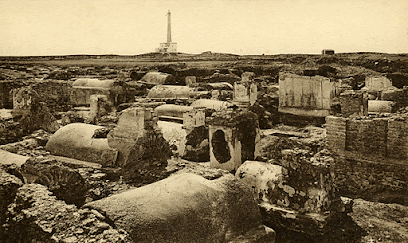
Festival international de Sfax
Dive into the colorful world of arts, music, and culinary delights at the Festival International de Sfax, a celebration of Tunisian culture.

Essential places to dine
Farm Slice Teniour
Discover authentic pizza at Farm Slice Teniour in Sfax – where tradition meets flavor in every slice.
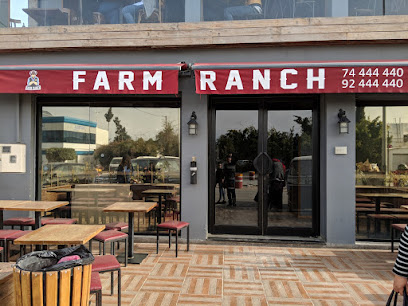
Pizzeria Sandwich Chez TonTon
Discover delightful pizzas and sandwiches at Pizzeria Sandwich Chez TonTon in Sfax - where flavor meets tradition.
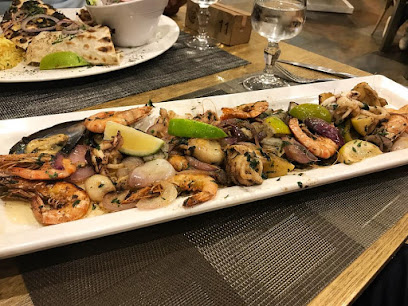
L'agora Sfax
Experience authentic Tunisian cuisine at L'Agora Sfax – where flavor meets tradition in every dish.
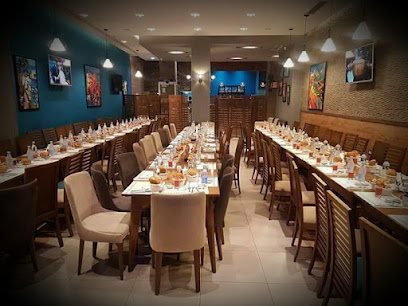
Restaurant La Voile Blanche
Discover authentic Tunisian flavors at Restaurant La Voile Blanche in Sfax - where culinary tradition meets modern dining.
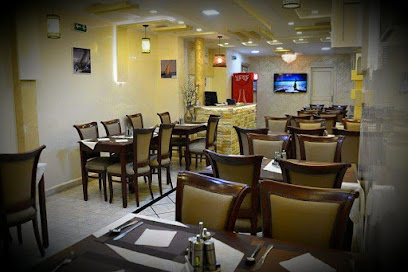
The Coral
Experience authentic Tunisian seafood at The Coral in Sfax - where family-friendly dining meets culinary tradition.
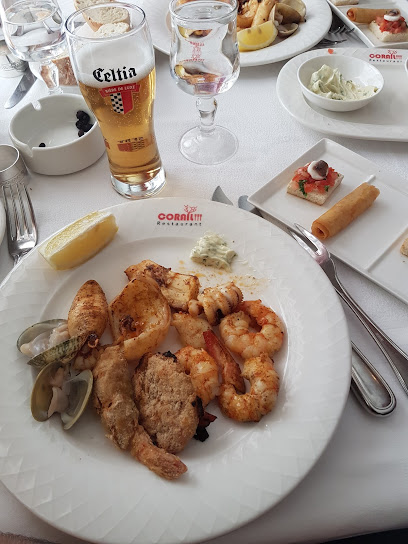
Restaurant Zitouna 2
Experience authentic Tunisian flavors at Restaurant Zitouna 2 in Sfax - where every dish tells a story.
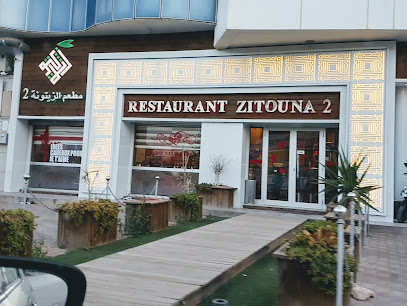
La sirène
Discover La Sirène: A must-visit seafood restaurant in Sfax serving fresh catches with authentic Tunisian flair.
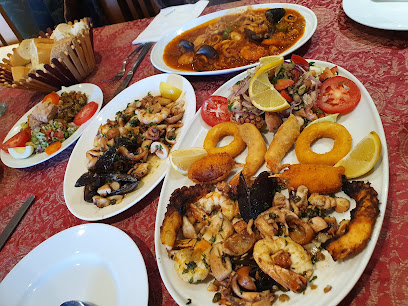
Soltana Food
Discover authentic Tunisian cuisine at Soltana Food in Sfax—where every dish is a celebration of local flavors and traditions.
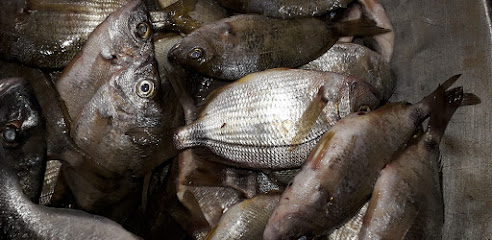
Le Grill
Experience authentic Tunisian cuisine at Le Grill in Sfax – where tradition meets flavor in every bite.
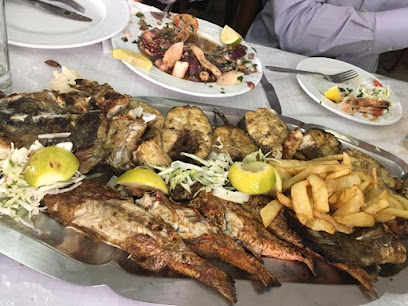
Saint Tropez
Savor exquisite French cuisine in Sfax's charming eatery, Saint Tropez – where every meal is a delightful culinary experience.
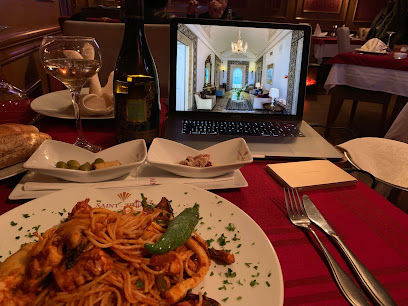
Le Barbecue
Discover authentic Tunisian cuisine at Le Barbecue in Sfax - where every meal is a celebration of flavor!
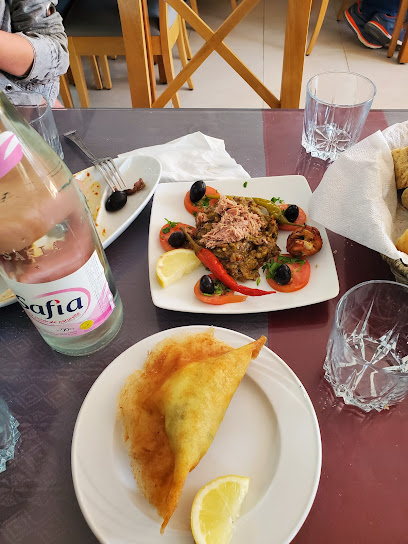
Restaurant Baghdad
Experience authentic Tunisian cuisine at Restaurant Baghdad in Sfax – a family-friendly dining destination with rich flavors and welcoming ambiance.
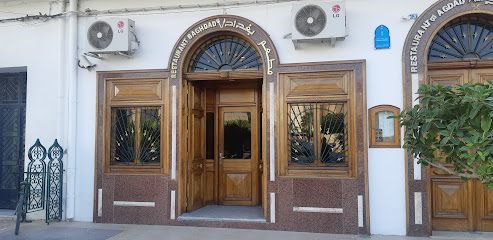
Restaurant Elgola
Discover authentic Tunisian flavors at Restaurant Elgola in Sfax - a culinary haven for food lovers seeking rich cultural experiences.
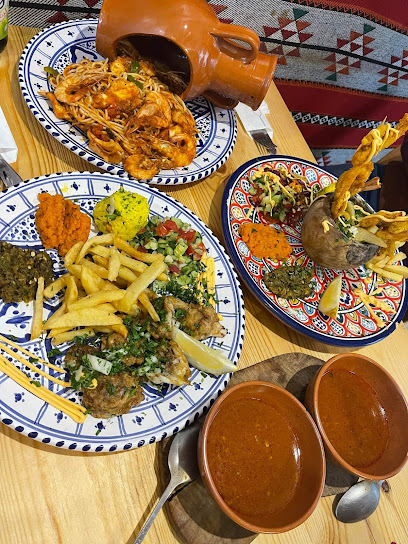
مطعم شعيب
Discover the authentic flavors of Tunisia at مطعم شعيب in Sfax - a delightful restaurant offering traditional cuisine in a warm ambiance.
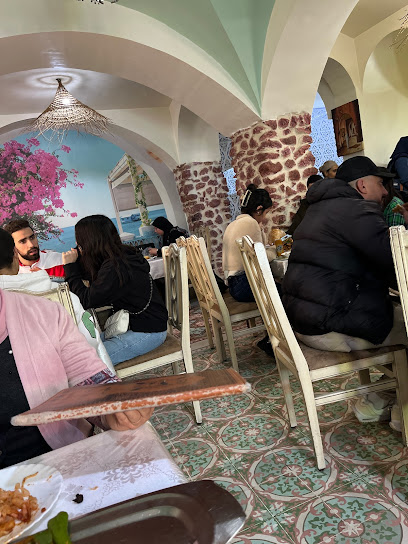
Restaurant ElMakhzen
Discover the essence of Tunisian cuisine at Restaurant ElMakhzen – where tradition meets flavor in Sfax.
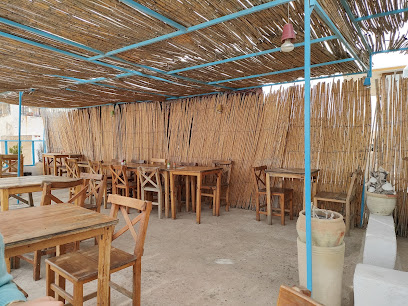
Markets, malls and hidden boutiques
Sco New's SFAX
Explore Sco New's SFAX, a unique gift shop and bridal boutique in Sfax, showcasing local craftsmanship and special treasures for every occasion.
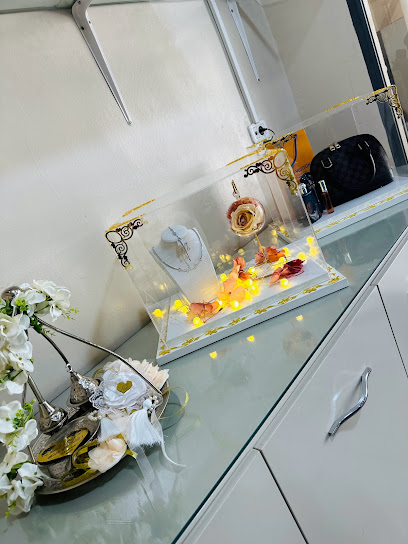
Zen
Explore trendy fashion at Zen in Sfax, Tunisia - your go-to clothing store for stylish apparel and great deals.
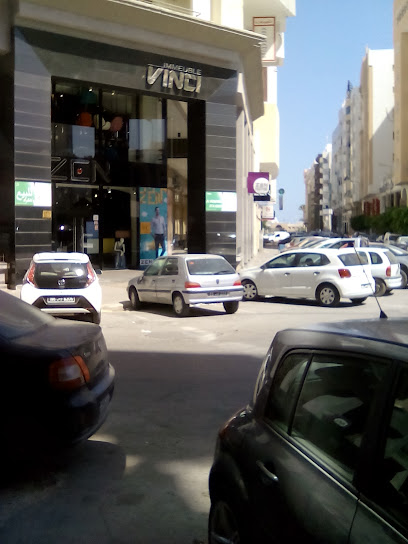
TUNISIA MALL SFAX
Explore Tunisia Mall Sfax, a vibrant shopping destination blending local charm with international brands, dining, and entertainment for an unforgettable experience.

Cotonet Lingerie Sfax Tunisie
Explore Cotonet Lingerie in Sfax for stylish intimate apparel and clothing, offering quality and elegance for every occasion.

Boutique Faiz Fakhfakh
Explore Boutique Faiz Fakhfakh in Sfax for a unique blend of traditional and modern Tunisian fashion, perfect for every traveler.
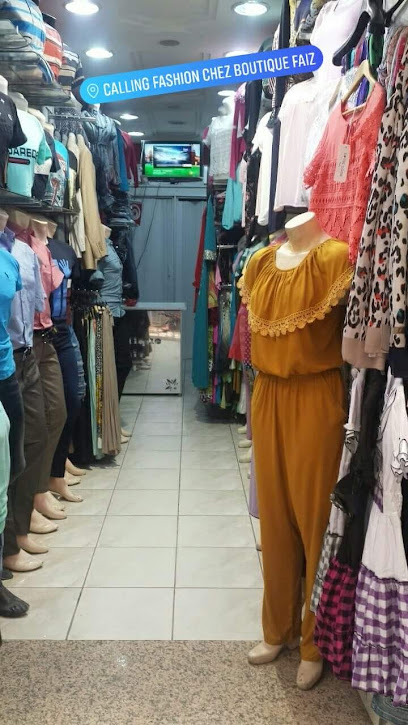
Lufian Carrefour Sfax
Discover the latest Tunisian fashion trends at Lufian Carrefour Sfax, a premier clothing store offering a unique shopping experience.
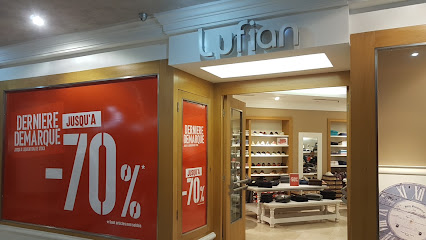
Jennyfer
Explore the latest trends in women's fashion at Jennyfer, a stylish clothing store in Sfax's Aljadida Shopping Centre.
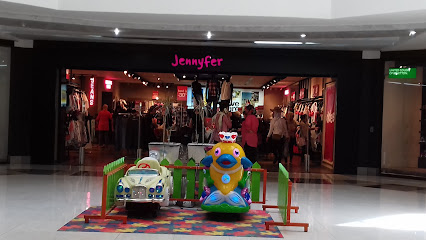
Point Cadeaux
Explore the charm of Tunisia at Point Cadeaux, your go-to gift shop for authentic souvenirs and local handicrafts in Sfax.
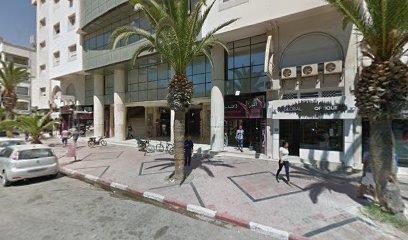
Mango Sfax
Explore the chic collections at Mango Sfax, a premier clothing store in Tunisia offering trendy apparel and stylish accessories for every occasion.
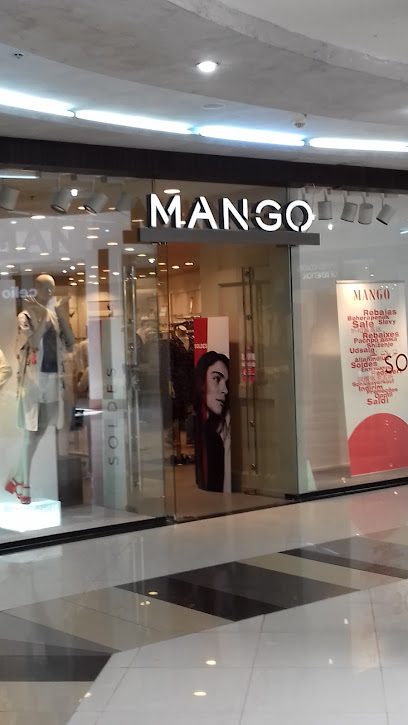
MAZZARO MILANO NASSRIA IHEB CENTRE
Explore MAZZARO Milano Nassria Iheb Centre in Sfax for the latest in men's fashion, blending style and quality in every piece.
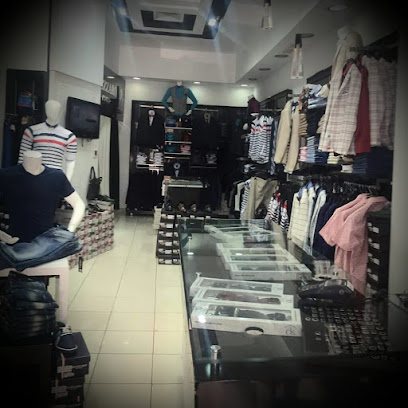
Ops-just for you
Explore Ops-just for you in Sfax for unique gifts, personalized treasures, and local craftsmanship that capture the essence of your travels.
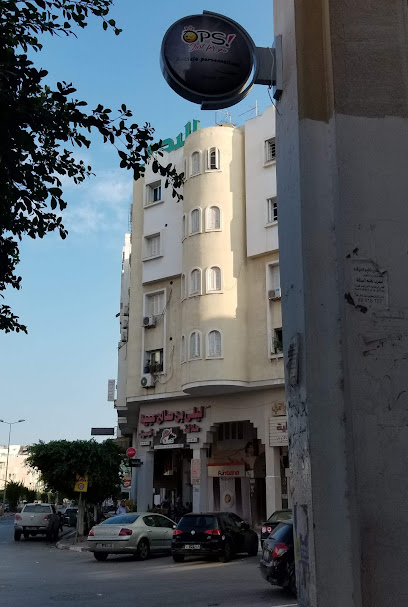
Kastelo Nasria
Discover unique clothing and fashion pieces at Kastelo Nasria, a premier shopping destination in Sfax, Tunisia, blending tradition with modern style.
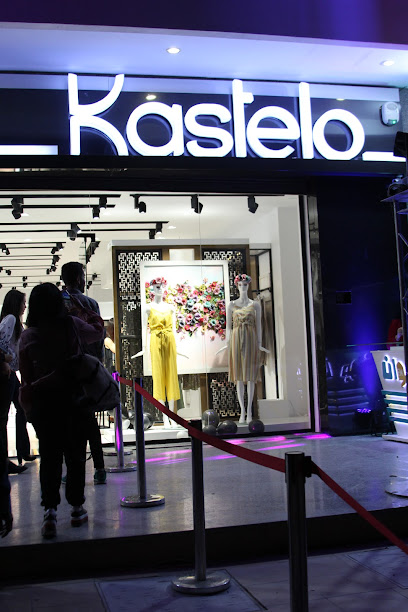
ZAIN Prêt à Porter
Explore contemporary women's fashion at ZAIN Prêt à Porter, a stylish destination in Sfax for unique and chic clothing.
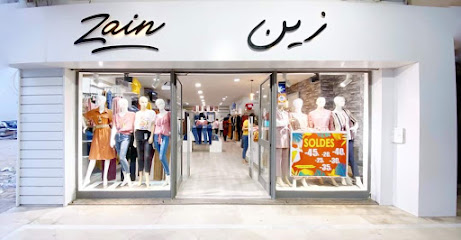
Celio
Explore Celio in Sfax for a unique boutique shopping experience that celebrates Tunisian culture and craftsmanship.
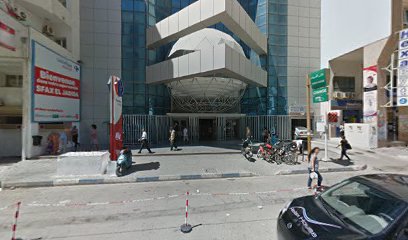
Boutique SAMAR
Discover the essence of Tunisian fashion at Boutique SAMAR in Sfax, where tradition meets contemporary style in a unique shopping experience.
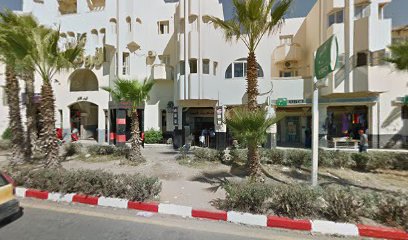
Essential bars & hidden hideouts
La Palette
Experience the vibrant flavors of Tunisia at La Palette, Sfax's premier bar and restaurant, where local culture meets delightful cuisine.
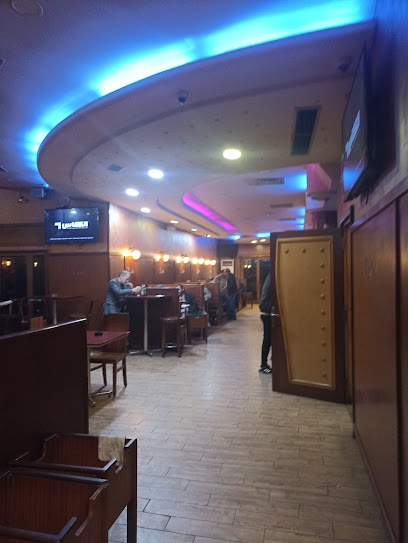
La Régence
Experience the vibrant atmosphere and delicious flavors at La Régence, Sfax's premier bar and grill where culinary delights await.
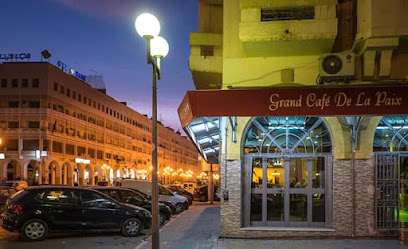
Le Lido
Savor the freshest oysters and vibrant seafood dishes at Le Lido, a local favorite in Sfax's lively dining scene.
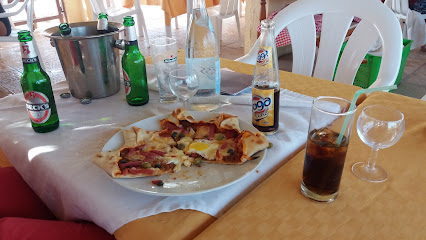
Le Printemps
Discover the vibrant flavors of Sfax at Le Printemps, a delightful bar and seafood restaurant offering fresh local cuisine and a lively atmosphere.
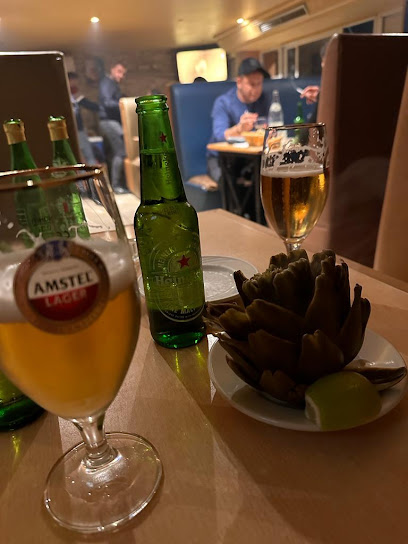
Chealing Lounge
Experience the vibrant nightlife at Chealing Lounge in Sfax, where local culture meets a lively bar scene with unique drinks and entertainment.
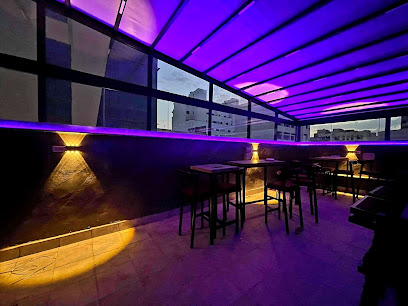
Bar la perla
Experience the vibrant nightlife at Bar La Perla, a local bar in Sfax, Tunisia, perfect for mingling and enjoying refreshing drinks.
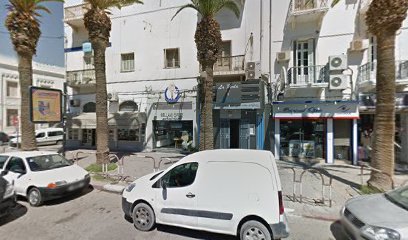
Bar salah
Discover the vibrant atmosphere of Bar Salah in Sfax, where refreshing drinks and local charm create the perfect escape for tourists.

Bar cafe didi
Experience the charm of Bar Cafe Didi in Sfax, where local culture meets refreshing beverages in a welcoming atmosphere.
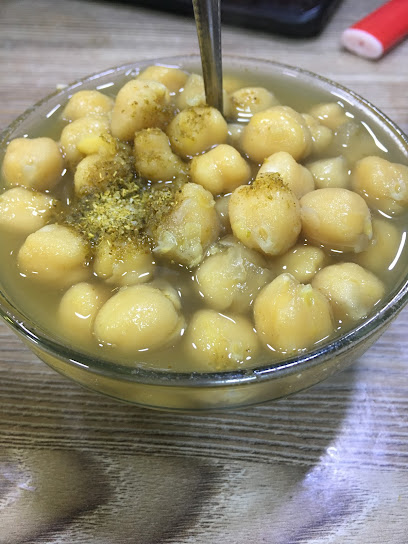
El Mayda
Experience the warmth of Sfax at El Mayda, where exquisite wines and a cozy atmosphere create unforgettable moments.
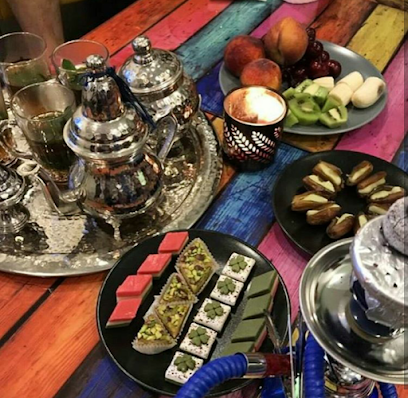
Bar Folla
Experience the vibrant nightlife of Sfax at Bar Folla, where local flavors meet an eclectic atmosphere for an unforgettable evening.
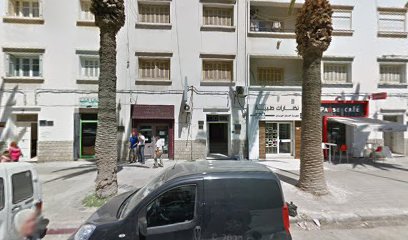
Café de Tunis
Experience the heart of Tunisian culture at Café de Tunis in Sfax, where local flavors and warm hospitality meet.
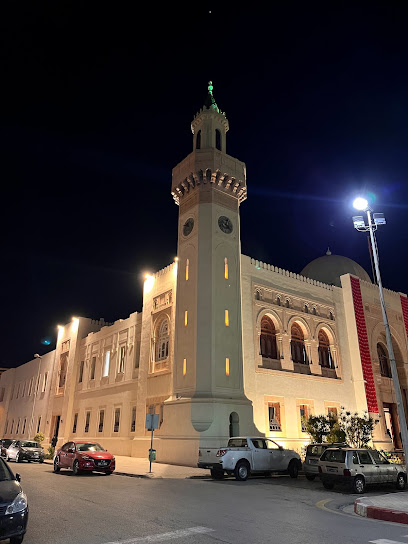
Le relais
Discover the lively atmosphere of Le Relais, a must-visit bar in Sfax where local culture and vibrant nightlife come together.

Bar Dami
Experience the vibrant nightlife of Sfax at Bar Dami, where local cuisine and a wide selection of drinks await you.
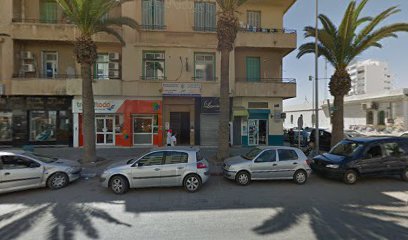
Loungescape
Loungescape in Sfax offers a luxurious lounge experience with exquisite drinks and a relaxing atmosphere, perfect for unwinding after a day of exploration.
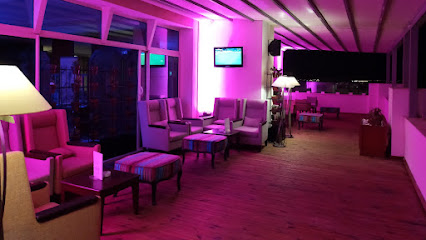
Local Phrases
-
- Helloمرحبا
[marhaba] - Goodbyeوداعا
[wada'an] - Yesنعم
[naam] - Noلا
[la] - Please/You're welcomeمن فضلك
[min fadlik] - Thank youشكرا
[shukran] - Excuse me/Sorryعذرا
[aadhra] - How are you?كيف حالك؟
[kayfa halik?] - Fine. And you?بخير. وأنت؟
[bikhayr. wa ant?] - Do you speak English?هل تتحدث الإنجليزية؟
[hal tatahadath al'inglizia?] - I don't understandلا أفهم
[la afham]
- Helloمرحبا
-
- I'd like to see the menu, pleaseأريد أن أرى القائمة، من فضلك
[uridu an ara alqaima, min fadlik] - I don't eat meatأنا لا آكل اللحم
[ana la aakul allahm] - Cheers!صحتين!
[sahhtayn] - I would like to pay, pleaseأريد أن أدفع، من فضلك
[uridu an adfa', min fadlik]
- I'd like to see the menu, pleaseأريد أن أرى القائمة، من فضلك
-
- Help!مساعدة!
[musaa'da!] - Go away!انصرف!
[ansarif!] - Call the Police!اتصل بالشرطة!
[atassil bilshurta!] - Call a doctor!اتصل بطبيب!
[atassil bittabib!] - I'm lostلقد ضللت الطريق
[laqad dalalt altariq] - I'm illأنا مريض
[ana mariid]
- Help!مساعدة!
-
- I'd like to buy...أريد أن أشتري...
[uridu an ashtari...] - I'm just lookingأنا فقط أتطلع
[ana faqat atatlau] - How much is it?كم هو ثمنه؟
[kam huwa thamanu?] - That's too expensiveهذا غالي جدا
[hatha ghali jiddan] - Can you lower the price?هل يمكنك خفض السعر؟
[hal yumkinuka khafd alsu'ur?]
- I'd like to buy...أريد أن أشتري...
-
- What time is it?كم الساعة؟
[kam alsaa'a?] - It's one o'clockالساعة الواحدة
[alsaa'at alwaahida] - Half past (10)الساعة العاشرة والنصف
[alsaa'at al'ashira walnisf] - Morningالصباح
[assabah] - Afternoonالظهر
[adhuhur] - Eveningالمساء
[almasa'] - Yesterdayأمس
[ams] - Todayاليوم
[alyawm] - Tomorrowغدا
[ghadan] - 1واحد
[waahid] - 2اثنان
[ithnaan] - 3ثلاثة
[thalatha] - 4أربعة
[arba'a] - 5خمسة
[khamsa] - 6ستة
[sitta] - 7سبعة
[sab'a] - 8ثمانية
[thamaniya] - 9تسعة
[tisa'a] - 10عشرة
[ashara]
- What time is it?كم الساعة؟
-
- Where's a/the...?أين هو/هي...؟
[ayn huwa/hyy...?] - What's the address?ما هو العنوان؟
[ma huwa al'anaan?] - Can you show me (on the map)?هل يمكنك أن تريني (على الخريطة)؟
[hal yumkinuka an tureeni (ala alkharita)?] - When's the next (bus)?متى القادم (الحافلة)؟
[mata alqadim (alhafilah)?] - A ticket (to ....)تذكرة (إلى ....)
[tazkirah (ila ....)]
- Where's a/the...?أين هو/هي...؟
History of Sfax
-
Sfax, located on the eastern coast of Tunisia, was founded in 849 AD on the ruins of the ancient Roman town of Taparura. The city quickly flourished as a vital center for agriculture, trade, and fishing due to its strategic location on the Mediterranean Sea.
-
During the 10th and 11th centuries, Sfax came under the rule of the Fatimid Caliphate and later, the Zirid dynasty. This period was marked by the construction of the city's iconic medina, which still stands today as a testament to its medieval heritage. The Great Mosque, built in the 9th century and later expanded, is a key architectural highlight from this era.
-
In the 12th century, Sfax briefly fell under Norman control before being recaptured by the Almohads and later the Hafsids. The Hafsid period (13th to 16th centuries) was a time of economic prosperity and cultural development for Sfax, as the city became known for its skilled artisans and bustling markets.
-
In 1574, Sfax became part of the Ottoman Empire, which brought about significant changes in the city's administration and infrastructure. The Ottomans fortified the city walls and built new structures, including baths and caravanserais, which enhanced Sfax's status as a regional hub for commerce and trade.
-
The late 19th century saw Tunisia, including Sfax, fall under French control as part of the French Protectorate established in 1881. This period introduced modern infrastructure, including railways and port facilities, transforming Sfax into a key industrial and commercial center. However, this era also saw significant resistance from local populations, culminating in the struggle for independence.
-
During World War II, Sfax was a strategic objective due to its port and transportation links. The city witnessed significant military action during the North African Campaign, particularly during Operation Pugilist in 1943 when Allied forces fought to liberate Tunisia from Axis control. The war left lasting scars on the city, but also paved the way for post-war reconstruction and development.
-
After Tunisia gained independence in 1956, Sfax embarked on a path of rapid modernization and growth. The city expanded its industrial base, particularly in phosphate processing and olive oil production, becoming an economic powerhouse in the region. Today, Sfax is known not only for its rich history but also for its vibrant cultural scene and dynamic economy.
Sfax Essentials
-
Sfax is located in the southeastern part of Tunisia. The city is served by Sfax–Thyna International Airport (SFA), which offers flights to and from various destinations in Europe and North Africa. Alternatively, you can fly into Tunis-Carthage International Airport (TUN) in Tunis, the capital city, and then take a domestic flight, train, or bus to Sfax. The train from Tunis to Sfax takes about 4 hours and provides a comfortable and scenic journey.
-
In Sfax, you can get around using taxis, which are plentiful and relatively inexpensive. The city also has a network of public buses and minibuses (louages) that connect various parts of the city and neighboring towns. For short distances, walking is a viable option, especially in the Medina and central areas. Renting a car is another option if you prefer to explore the surrounding regions at your own pace.
-
The official currency in Tunisia is the Tunisian Dinar (TND). Credit cards are widely accepted in hotels, restaurants, and larger shops, but it is advisable to carry cash for smaller establishments and markets. ATMs are available throughout Sfax, making it convenient to withdraw cash as needed. It is also a good idea to have some smaller denominations for everyday transactions.
-
Sfax is generally a safe city for tourists, but as with any travel destination, it is important to take standard precautions. Avoid walking alone at night in unfamiliar areas and be mindful of your belongings, especially in crowded places like markets. The Medina can be busy and disorienting, so stay alert. There are no specific high-crime areas targeting tourists, but staying vigilant is always recommended.
-
In case of emergency, dial 197 for the police and 190 for medical emergencies. Sfax has several hospitals and clinics that offer medical assistance. Pharmacies are also available for minor health issues and over-the-counter medications. It is advisable to have travel insurance that covers medical emergencies. Knowing a few basic phrases in French or Arabic can also be helpful in emergency situations.
-
Fashion: Do dress modestly, especially when visiting religious sites. Avoid wearing revealing clothing. Religion: Do respect local customs and traditions. When visiting mosques, dress conservatively and remove your shoes. Public Transport: Do be respectful and give up your seat to elderly passengers. Avoid eating or drinking on public transport. Greetings: Do greet people with a handshake; it is customary. Eating & Drinking: Do try local delicacies and accept food offerings graciously. Avoid public displays of affection, as it is considered impolite.
-
To experience Sfax like a local, visit the Medina, where you can explore traditional markets (souks) and buy local crafts and produce. Engage with locals, who are often friendly and willing to share stories about their city. Don't miss trying local dishes such as 'brik' and 'lablabi.' For a unique experience, visit the El Jem Amphitheatre, a UNESCO World Heritage Site located a short drive from Sfax. Additionally, consider taking a day trip to the Kerkennah Islands for a relaxing escape.
Nearby Cities to Sfax
-
Things To Do in Djerba
-
Things To Do in Monastir
-
Things To Do in Sousse
-
Things To Do in Hammamet
-
Things To Do in Tunis
-
Things To Do in Tozeur
-
Things To Do in Sabratha
-
Things To Do in Bizerte
-
Things To Do in Tripoli
-
Things To Do in Xlendi
-
Things To Do in Gozo
-
Things To Do in Xewkija
-
Things To Do in Xaghra
-
Things To Do in Marsalforn
-
Things To Do in Mgarr











